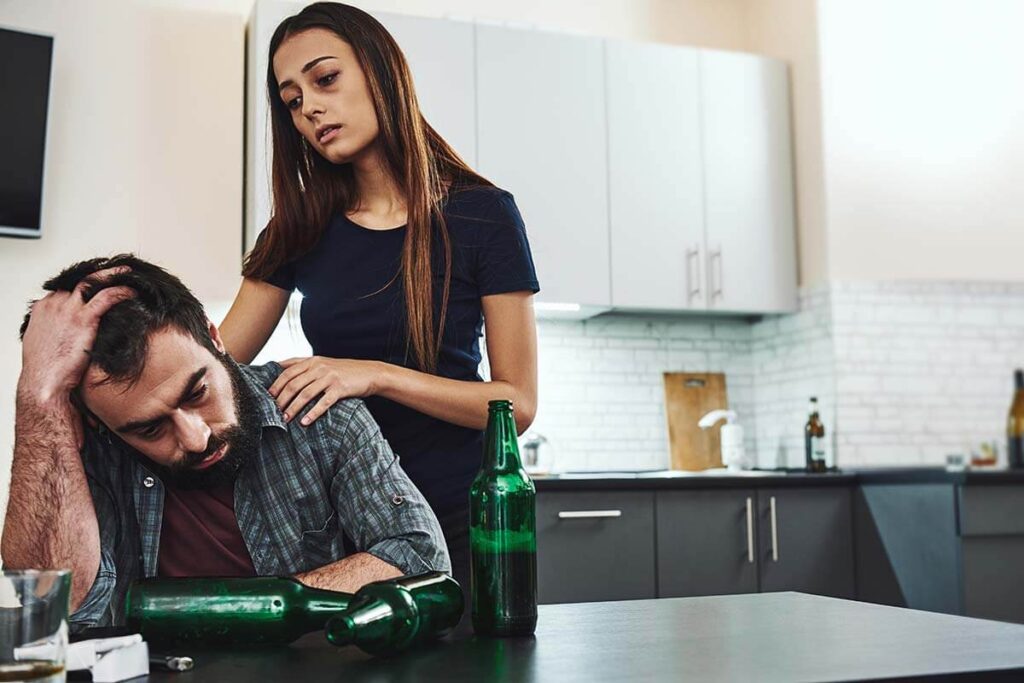The struggles with drug and alcohol problems can affect an entire family. People’s lives involve relationships with others, and their problems will directly affect others, too. Sometimes, two or more people can experience the same issues with substance abuse creating codependent addicts. Breaking the cycle involves overcoming codependency, which can be a challenge for everyone. Addiction therapy services in North Carolina helps women overcome codependent relationships during rehab.
What is Codependency?
The concept of “codependency” is not difficult to understand. Codependency refers to a relationship where one person contributes to another person’s dysfunctional behavior. In many cases, the problem involves substance abuse. The relationships between codependent addicts can be very unhealthy and disguised as relief of pain and emptiness. One person may wish to become free of substance abuse issues, but the other person could take steps to make recovery difficult, if not impossible. The reason is the partner continues to use drugs or alcohol. Worse, they may encourage a partner to use, as well.
Recognizing Codependency
Why deal with all the troubles of such a relationship? Simply put, the person suffering in a codependent relationship might not even realize how bad things are to work on overcoming codependency issues. A spouse or partner could believe a relationship is healthy and reasonable no matter what the warning signs are. A more honest look at the relationship could reveal the truth about the situation.
What are signs something is wrong? Well, there are lots of different signs of codependent addicts. When one person relies heavily on a partner for personal identity, there is likely something seriously wrong. The same is true of a spouse who continues to use drugs and alcohol to please a partner, despite the dangers and harm.
When unhealthy aspects of the relationship add up, denying anything is wrong is another possible indicator of codependency. One feeling a partner might not deny, however, is feeling trapped in the relationship. Codependency can make a relationship miserable, but leaving the relationship could create a sense of loss.
Codependency can also involve one partner being incredibly controlling of the other. The dominating partner draws their sense of power from controlling someone. That person might even gain self-worth from controlling someone else. Breaking the codependency cycle becomes hard when one partner holds onto it with an iron grip.
Discussing such problems with a therapist or other counselor could help someone address such a troubled relationship. Overcoming codependency may not be a process a person can do on his or her own. That is one reason why rehab programs do address codependency issues as part of therapy. Support from professionals may guide someone struggling for a solution.
Overcoming Codependency and Dealing With Codependency
Recognizing the situation is unhealthy is one of the most important first steps. When partners are unaware of their codependent relationships and the problems it creates, they may never change course. So, their life does not experience the changes necessary for improvement. Recognizing the problem, however, becomes hard without assistance from a third party. This is one reason so many seek professional help.
Take steps to love yourself. Often, people in codependent relationships have self-esteem troubles. They gain self-esteem through their connection with their partner even though the relationship is not positive. Taking steps to see your self-worth might cut down on decisions to stay in a codependent relationship.
Understanding the importance of sobriety plays a significant part in overcoming codependency. When you rely on alcohol and drugs, making the right decisions about relationships becomes hard. Breaking away from a partner who uses is also challenging when you share the same problem. When you become a client at our rehab program, we can provide solutions to your dependency issues. We can also teach you coping skills in Asheville, NC, and other valuable lessons.
The grips of both chemical and relationship dependency do not have to hold onto you forever. Call 855.773.0614 to ask about our treatment options. Contact The Willows at Red Oak Recovery to get your life back on track. We are here to help.

